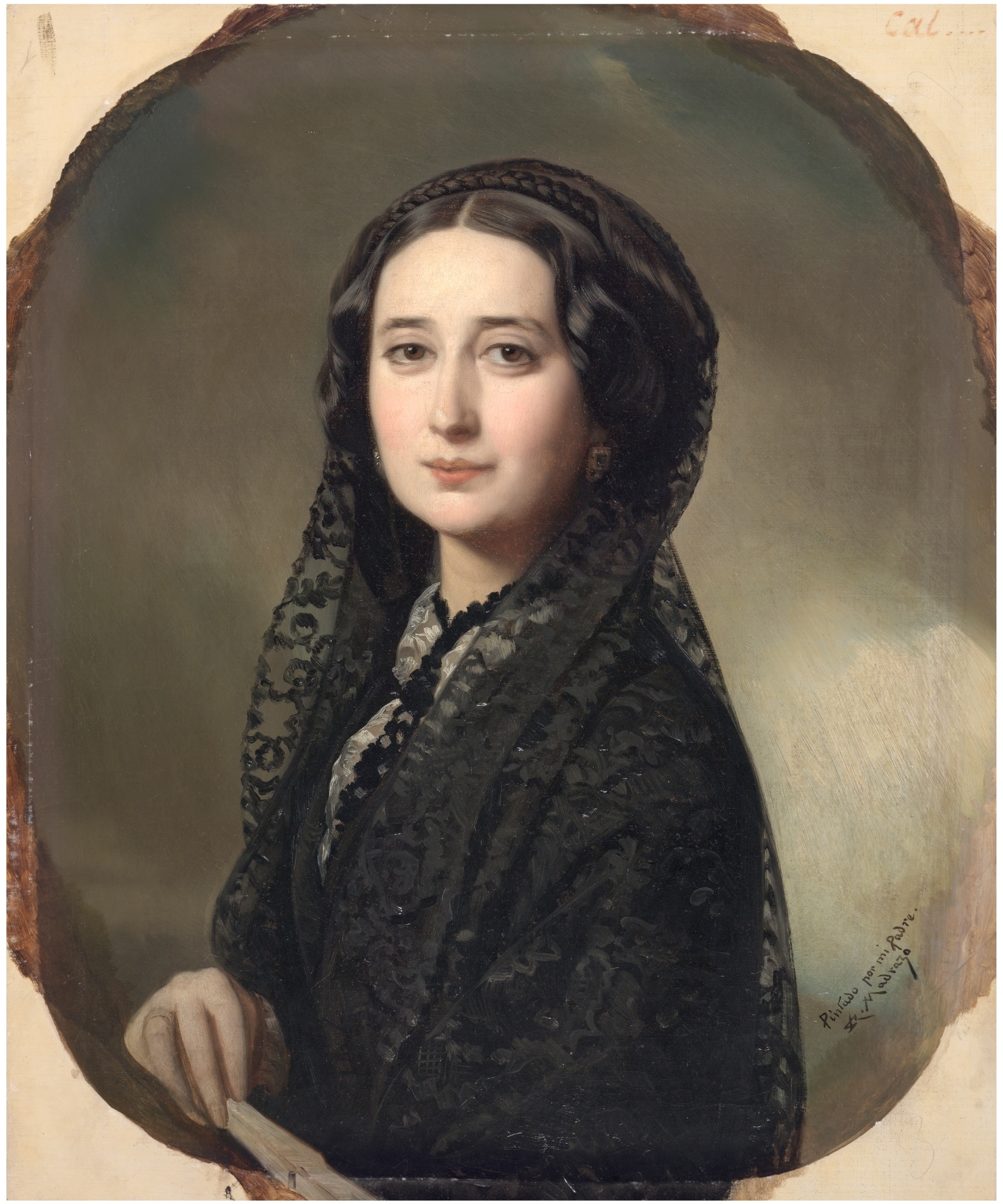Carolina Coronado's poems are fundamental in Spanish Romanticism and connect the author with contemporaries such as Gertrudis Gómez de Avellaneda, Robustiana Armiño, Vicenta García Miranda, Ángela Grassi or Encarnación Calero de los Ríos. She is also a contemporary with the novelist Cecilia Böhl de Faber, with whom Realism began in Spain, as well as Concepción Arenal and M.ª Josefa Massanés i Dalmau, introducers of feminism in Spain and Catalonia respectively, or María Mendoza de Vives, among others.

Carolina Coronado
Almendralejo (Badajoz), 12-12-1820 — Lisboa, 15-01-1911
Periodo de actividad: 1843 — 1873
Clasificación geográfica: Europa > España
Movimientos socio-culturales
Edad Contemporánea > Romanticismo
Grupos por ámbito de dedicación
Escritoras > Poetas
Escritoras
Contexto de creación femenina
Reseña
Carolina Coronado was a self-taught writer of the Spanish Romanticism, whose mentor was Juan Eugenio de Hartzenbusch, who encouraged her to publish her poems and even prefaced her collection of 37 poems, published in 1843 (Poesías). She also cultivated other genres: prose, essay and drama, but she stands out essentially for her poetry.
Actividades
Justificaciones
Biografía
Carolina Coronado (Victoria Carolina Coronado y Romero de Tejada), poetess of Spanish Romanticism, she was born in Almendralejo in 1820 and died in Lisbon in 1911.
She was a self-taught writer, since her family was not favourable to her eagerness to read or her literary attempts. The same thing happened with the society in which she lived, since a woman receiving literary education was not seen with good eyes. Therefore, Carolina wrote and preserved her verses by learning them by heart, with the difficulties that this entailed.
Despite everything, she was mentored by J.E. de Hartzenbuch, who encouraged her to publish her poems. Likewise, she was part of various Lyceums in Spain, published in numerous newspapers of the time, and she encouraged other women (Robustiana Armiño, Vicenta García Miranda, etc.) to write.
In 1843, the first edition of Hartzenbuch's Poesías with a Prologue appeared, and in 1852 she published a new edition of the work, expanding it with 182 more poems. These poetry collections were joined by works in prose such as Paquita, Jarilla, La Sigea or La rueda de la desgracia, as well as an essay on the parallelism between Sappho and Santa Teresa de Jesús.
Among the poems of this author you can find some of the best poems of Spanish Romanticism.
https://escritores.bne.es/authors/carolina-coronado-1820-1911/ (20/01/2022)
https://es.wikipedia.org/wiki/Carolina_Coronado (20/01/2022)
https://dbe.rah.es/biografias/5064/carolina-coronado-romero-de-tejada (20/01/2022)
Obras
- Poesías (1843)
- Paquita (1850)
- Jarilla (1851)
- La rueda de la desgracia (1873)
Bibliografía
Caballé, Anna (2004). La pluma como espada. Del Romanticismo al Modernismo. Barcelona: Lumen.
Kirkpatrick, Susan (1991). Las románticas: escritoras y subjetividad en España, 1835-1850. Madrid: Cátedra.
Kirkpatrick, Susan (1992). Antología poética de escritoras del siglo XIX. Madrid: Castalia.
Navas Ruiz, Ricardo (1990). El Romanticismo español. Madrid: Cátedra.
Ossorio y Bernard, Manuel (1889). ”Apuntes para un diccionario de escritoras españolas del siglo XIX”, in La España Moderna, pp 169-194.
VV.AA. (2000) Historia de las mujeres 4. El siglo XIX. Madrid: Taurus.
Audiovisuals:
RTVE. La red feminista de sororidad de Carolina Coronado https://www.rtve.es/noticias/20201212/red-feminista-sororidad-carolina-coronado/2059625.shtml (20/01/2022)
RTVE. Bicentenario de Carolina Coronado, la poeta feminista del romanticismo https://www.rtve.es/play/videos/todxs-por-igual/bicentenario-carolina-coronado-poeta-feminista-del-romanticismo/5736882/ (20/01/2022)
Enfoque Didáctico
She is studied in the subject of Spanish Language and Literature.